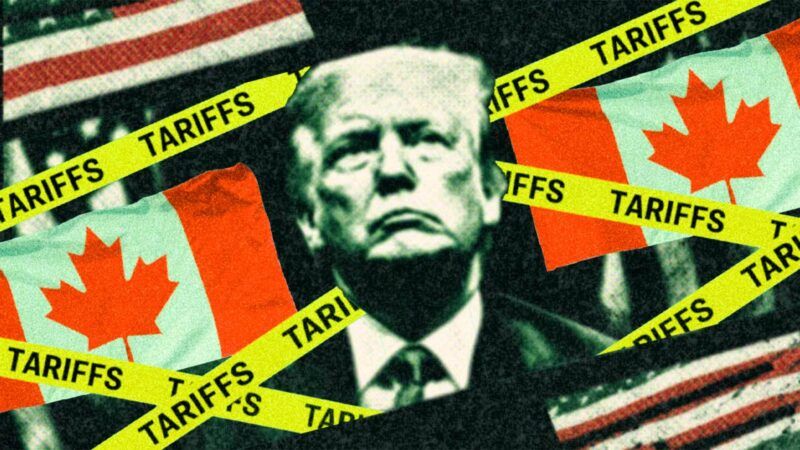How Trump's Proposed 35 Percent Tariff on Canada Could Harm Domestic Manufacturing
Increasing the cost of inputs and imported energy would make American exports less competitive.

President Donald Trump is once again ratcheting up trade barriers with one of America's largest trading partners. On Thursday, the president announced a 35 percent tariff on all Canadian goods not covered by the United States-Mexico-Canada Agreement (USMCA) to take effect on August 1, unless a trade deal is reached before then. A White House official has said that the USMCA exemption is subject to change, reports The Wall Street Journal. If Trump's tariffs go into effect without USMCA exemptions, over $100 billion of Canadian energy imports a year may be subject to increased tariffs, harming not only American consumers but domestic manufacturers.
Trump sent a letter to Canadian Prime Minister Mark Carney on Thursday evening, which was subsequently shared on Truth Social, announcing his new tariff framework. The letter blames Canada for "having financially retaliated against the United States" after America implemented tariffs on Canada "to deal with [America's] Fentanyl crisis." As a consequence of Canada's retaliatory tariffs, the U.S. will "charge Canada a Tariff of 35% on Canadian products sent into the United States." Trump stipulated that there would be no tariffs if Canada or Canadian companies "decide[d] to build or manufacture product within the United States."
Canada imposed 25 percent tariffs on $30 billion worth of American imports on March 4 in response to American tariffs of 25 percent on Canadian goods and 10 percent on Canadian energy resources—despite the USMCA guaranteeing zero-tariff trade in energy products—and critical minerals from the country. Since then, the U.S. has invested billions of dollars to boost domestic manufacturing of critical minerals and reduce its dependency on Chinese sources. The second phase of these Canadian tariffs was scheduled to include another $125 billion of American goods on March 25. While this second phase of tariffs was paused, Canada extended 25 percent tariffs to $29 billion worth of steel and aluminum products and American automobiles on March 13 and April 9, respectively, according to Blakes, an international law firm based in Canada.
If implemented, Trump's new 35 percent duties will be "separate from all Sectoral Tariffs," such as the 50 percent tariff on steel and aluminum imports. Trump also promised that, if Canada raises its own tariffs in response, then "whatever number [Canada chooses] to raise them by, will be added onto the 35% that [the U.S. charges]."
One of the myriad justifications Trump invokes for his protectionist policies is reshoring American manufacturing and eliminating the U.S. trade deficit, which he calls a threat to America's economy and national security. But hiking tariffs is likely to increase America's trade deficit, not decrease it.
The majority of America's energy imports come from Canada and in 2023, the U.S. imported $119 billion worth of crude oil, refined petroleum products, natural gas, and natural gas liquids from its northern neighbor, accounting for 58 percent of the volume of hydrocarbons imported by the U.S., according to Canadian Energy Regulator data. Moreover, Canada was the source of 85 percent of the electrical energy imported by the U.S. that year, per the Canadian Energy Regulator. With energy accounting for 20 percent to 40 percent of steel production costs, according to the World Steel Association, taxing energy imports will make American-made steel more expensive and concomitantly less attractive in the international market.
Trump's trade war has hurt American exporters and the economy. A new set of tariffs on America's single largest energy trading partner won't bolster American manufacturing but hamstring it. This announcement and the new duties on copper imports will hurt America's competitiveness and raise prices for consumers—the opposite of Trump's stated objectives.


Show Comments (32)